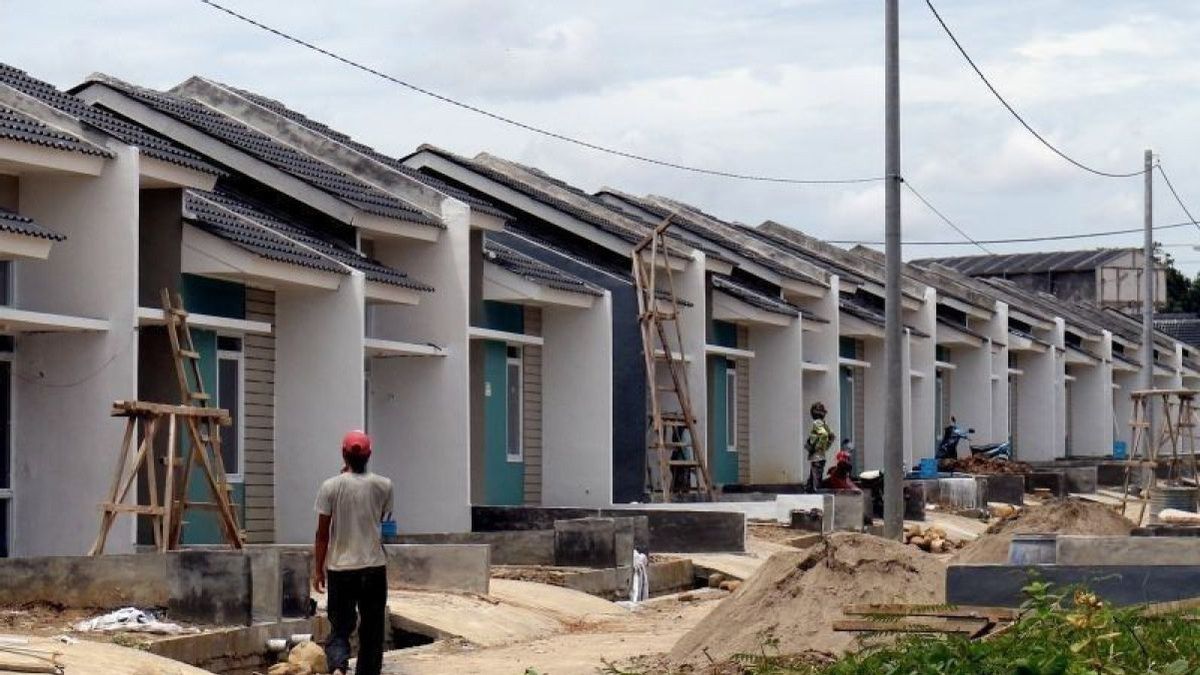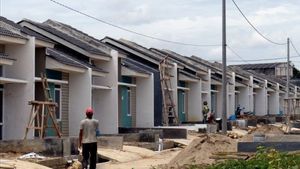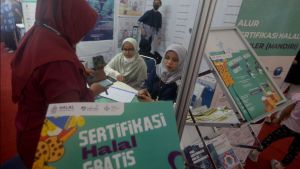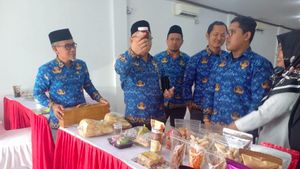JAKARTA - President of the Confederation of Indonesian Trade Unions (KSPI) Said Iqbal urged the government to immediately revoke Government Regulation Number 21 of 24 concerning Public Housing Savings (PP Tapera).
According to Said Iqbal, there are at least six reasons why Tapera should be revoked. First, the program burdens the living expenses of workers or laborers.
"In the midst of labor purchasing power which has decreased by 30 percent and a very low minimum wage due to the Job Creation Law, 2.5 percent of Tapera contributions that must be paid by workers will increase the burden on financing daily needs," he said in an official statement, Tuesday, June 4.
Furthermore, Iqbal said the deductions imposed on workers were close to 12 percent of the wages received, including 5 percent Income Tax, 1 percent Health Insurance contribution, 1 percent Pension Guarantee contribution, 2 percent Old Age Security contribution, and 2.5 percent Tapera contribution plan.
"Not to mention that if workers have cooperative debts or in companies, this will further burden the living expenses of workers," he explained.
Second, continued Said Iqbal, uncertainty has a home. According to him, with a discount of 3 percent of the wages of workers, within ten to twenty years of participation, workers will not be able to buy a house.
"Even just for an advance, it won't be enough," he said.
Third, continued Said Iqbal, the government seemed to be irresponsible. The reason is, in PP Tapera, there is not a single clause that explains that the government participates in the provision of houses for workers and other Tapera participants.
"The fees are only paid by workers and employers, without any budget from the APBN and APBD set aside by the government for Tapera. Thus, the Government is free from its responsibility to ensure that every citizen has a house that is one of the basic needs of the people, in addition to clothing and food," he explained.
In addition, Said Iqbal also said that the government said that Tapera funds are savings, so they should be voluntary, not coercive. In addition, because Tapera is a social savings, there should be no subsidies for using funds between participants, such as social savings in the Old Age Security (JHT) program, BPJS Ketenagakerjaan.
"Subsidies between participants are only allowed if the program is social insurance, not social savings. For example, a health insurance program that is social insurance, so the use of cross-subsidy funds between BPJS Health participants is allowed," he explained.
Then, continued Said Iqbal, another reason is the uncertainty and complexity of the disbursement of Tapera funds. For civil servants, military, and police, the sustainability of Tapera funds may have a long term because there are no layoffs. But for private workers and the general public, especially contract workers and outsourced, the potential for layoffs is very high.
"Therefore, Tapera funds for laid-off workers or informal workers will result in uncertainty and complexity in the disbursement and sustainability of Tapera funds," he said.
SEE ALSO:
Finally, continued Said Iqbal, Tapera funds are prone to corruption. Iqbal assessed that in the Tapera budget system, there are leaks that have great potential to be misused. Because in this world there is only a social security system or social assistance.
If the social security, said Iqbal, then the funds come from participant fees or taxes or a combination of the two with independent organizers, not the government. Meanwhile, the social assistance for funds comes from the APBN and APBD with the organizers being the government.
"The Tapera Model is neither of them, because the funds from the public and government contributions do not lead, but the organizers are the government," he explained.
On the basis of these six reasons, continued Said Iqbal, KSPI will prepare a major action which will be attended by thousands of workers on Thursday, June 6 at the State Palace, Jakarta, with demands to revoke PP Number 21 of 24 concerning Tapera and revise the Tapera Law.
"In addition, workers will voice demands to revoke the PP regarding the BPJS Health Standard Inpatient Room (KRIS) program, reject expensive Single Lecture Money (UKT), revoke the omnibus law of the Job Creation Law, and remove Outsourcing Against Cheap Wages (HOSTUM)," he said.
In addition to the action on Thursday, the Labor Party and KSPI will soon submit a judicial review of the Tapera Law to the Constitutional Court and the Judicial Review of PP Tapera to the Supreme Court.
The English, Chinese, Japanese, Arabic, and French versions are automatically generated by the AI. So there may still be inaccuracies in translating, please always see Indonesian as our main language. (system supported by DigitalSiber.id)
















